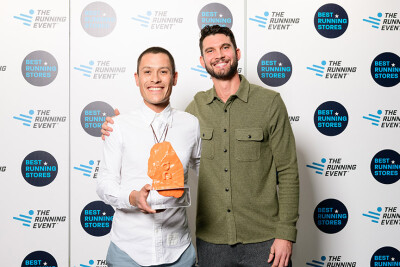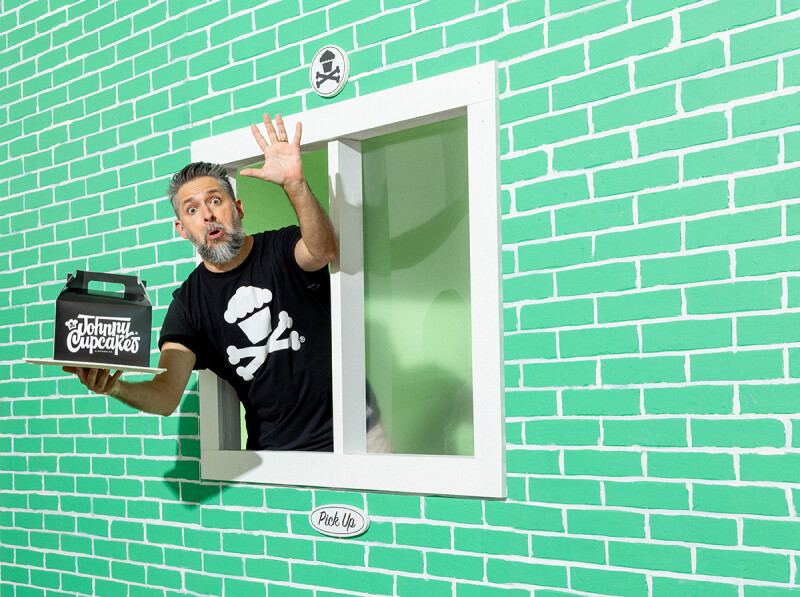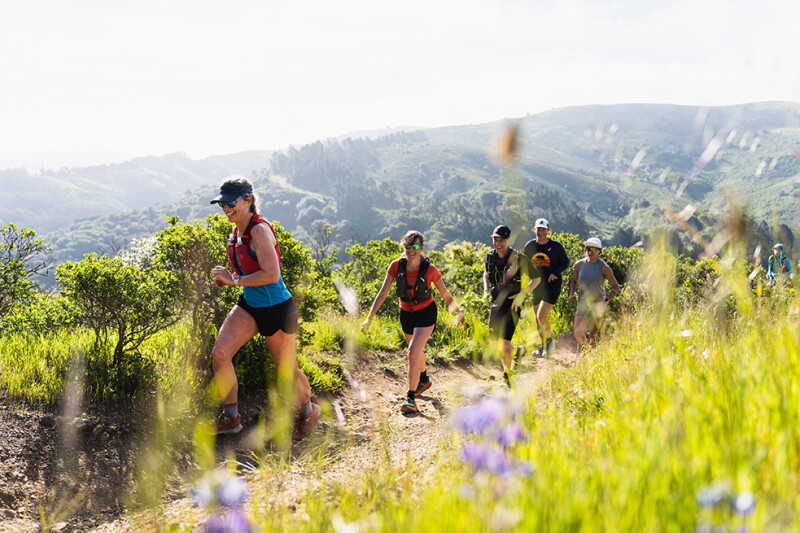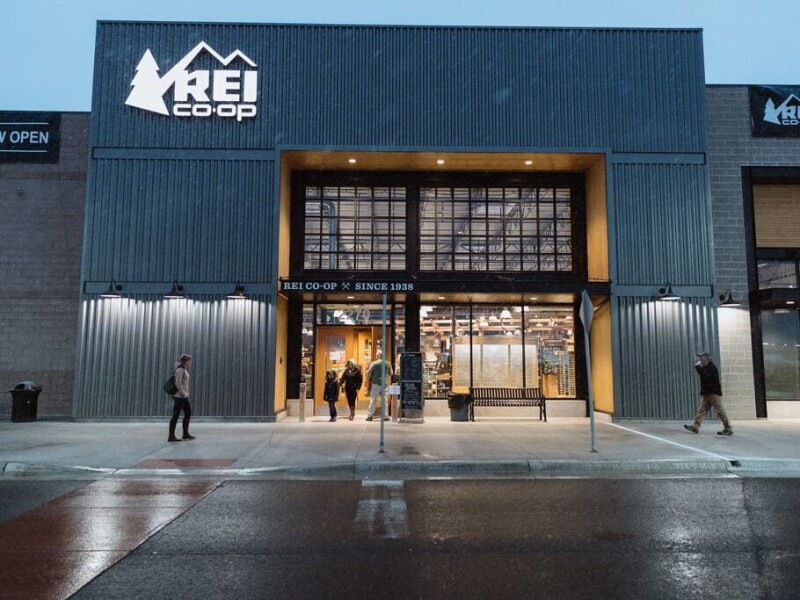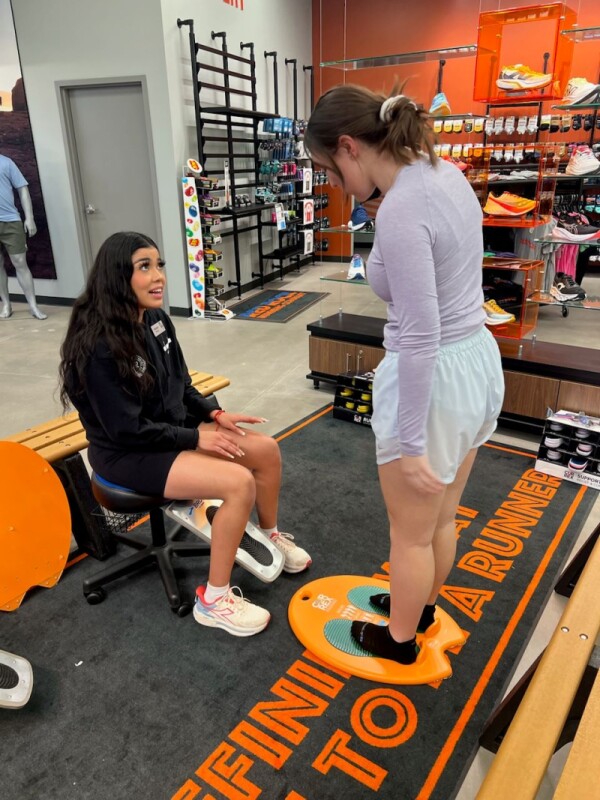ARunner’s Mind, which bills itself as the Bay Area’s local run specialty store, was founded in Burlingame, CA, in 2010 out of a love of running and walking, a commitment to its community and a passion for superior service. Colloquially it is referred to as ARM (pronounced like the word for your upper limbs).
When Running Insight researched the most environmentally conscious run specialty retailers in the country for this Sustainability Issue, the name ARM kept coming up, so we reached out to operations/events director Nick Kovaleski for insight into where the chain’s eco-consciousness comes from, how they implement it in their day-to-day operations and events and some advice for others looking to become more green in their businesses.
The two-store chain is made up of 25 part-time and full-time team members. Owned by Monte Keleher, who is also co-founder/CEO at Fitted, its leadership team today consists of Kovaleski, footwear buyer Derek Wun and general manager Eileen Urtz.
Running Insight: Please start us off with an explanation of your business and social outlook?
Nick Kovaleski: We understand that all who run, walk, participate in athletics or maintain an exercise regimen deserve a place where they can come together, to celebrate being active and receive and share expertise about anything from running gear to cross-training to nutrition and recovery. In 2013 we began serving San Francisco at our Laurel Heights location, where we’ve continued to offer the same great service to a whole new community of runners and walkers.
Where did your personal environmental awareness come from?
I grew up across the street from a nature preserve in Connecticut with a creek that ran behind our house, so from a young age I had a passionate appreciation of the natural world around us. My parents didn’t limit my exposure to the outdoors and when you grow up surrounded by nature it would be impossible to not feel a deep sense of gratitude for nature and a desire to protect our environment.
How did this start at ARM?
Partnering with the city of Palo Alto to help them host their Great Race for Saving Water in 2019 raised my environmental awareness in race production. Hosting an event in Palo Alto required the event be zero-waste and we were allowed to send nothing to the landfill. With guidelines like that, it’s hard not to shift your entire perspective to one that places the environment above all else.
How did that process work?
Here’s how it went:
“Is this element of the race going to harm the environment?
“Yes”
“Okay, we either find an alternative solution that doesn’t harm the environment or we eliminate that particular element of the race.”
Yes, it’s that simple. No, you can’t skip it.
Any other influences?
Beyond that, (Patagonia founder) Yvon Chouinard. He continues to raise my level of awareness and forces me to question whether what I’m doing is enough. He is a pioneer and he encourages us all to challenge ourselves to do everything we do responsibly.
Does being in California, and the San Francisco area in particular, have an impact on your environmental efforts?
The short answer, absolutely. We live both in a state that puts the environment first and also in an area with a high concentration of humans who understand the importance of environmental stewardship. There are few cities in the country that have standards as high as the city of Palo Alto. The opportunity to partner with them was possible simply because of where we are located.
Anything in particular?
The laws in our area require that we have to charge guests 25-cents to give them a bag with their purchase; sometimes folks visiting the area find it shocking, but we have to do something to wake everyone up to the impacts that every single choice of ours has on the world around us.
Your website says you and the Low Impact Alliance (LIA) “promote transparency and ecological responsibility within the running industry by educating, advocating and inspiring action.” What does that mean to you?
Transparency starts with being able to take the time to reflect on your own practices. Do everything in your power to make sure you operate your business as responsibly as possible. Share those efforts and empower others to believe that it’s a matter of just doing it.
Sounds like quite a challenge getting that done?
Sometimes people are scared to ask the questions or don’t know how to ask the right questions. This is where we need to step in to educate others about what we already know. You don’t know what you don’t know. Being educated on a subject opens up your perspective on how everything works together.
What do you see as your role in all of this?
As advocates, we want to uplift and share the stories of the amazing work being done by our brand partners and other stores across the country. Humans love stories and it’s even better when we can share stories about progress and positive outcomes. Again, we’re not going to change the way a majority of people make decisions, but when there is information to be shared to inform consumers about the impacts their choices have, it’s worth sharing that information.
Where does the inspiration for all of these efforts come from?
The reason I’m answering these questions is because of the inspiration I felt hearing Christian Fyfe, of Palmetto Running Company, speak at The Running Event in 2021. The running community is my family. But at that moment I knew I had found someone who truly sees the world similarly to how I see the world. That was comforting — and also inspiring. I immediately knew that I needed to start acting. I hope to continue sharing that inspiration so we build a strong network of environmental stewardship.
Can you explain the Zero Waste events at your store and how others can do the same thing?
Hosting zero-waste events starts with starting.
That’s an interesting way to put it. So how exactly do you start?
Put your money where your mouth is and do the right thing, do the work necessary to change the elements of your race or event that negatively impact the environment. If you need to buy plates for food being served, make sure those plates are going to decompose or are biodegrade. Anything that’s individually wrapped or that will end up in the landfill, avoid it entirely. It’s hard, I know, and it requires you to say no more than you may be comfortable saying no, but it’s also liberating to realize that the show will still go on, even without the balloons.
Anything other elements that make sense?
Be intentional with your prizes or giveaways; send folks home with something they need or will use, otherwise don’t feel the need to send them home with anything. Learn to focus on the experience, rather than just the tangible freebies.
Do these efforts carry over into any of the events you organize/sponsor?
Everything we learned from partnering with the city of Palo Alto we have incorporated into our largest annual event — our Gobble Wobble on Thanksgiving.
How so?
Medals, in my opinion, are an entirely unnecessary element of the racing industry. Eliminating medals entirely makes a huge difference on your event’s overall impacts. I’ve seen honest efforts to change the way medals are done, including wood rounds from tree branches that can double as a coaster. But it still begs the question — Is the medal necessary in the first place?
So is the medal necessary?
If you didn’t guess by now, we do not give out medals at our Gobble Wobble. Your participation prize instead is a pancake breakfast, which the community loves and creates an amazing opportunity for families to build lasting memories.
But what about shirts and other giveaways?
While I could make an argument for eliminating them entirely, we at least give participants the option to forgo a T-shirt, which allows us to send a greater dollar contribution to our charity partner.
And hydration?
We eliminated single-use plastic bottles from our races well before 2019, but the Silicon Valley Water District’s water truck that we had access to for the Great Race for Saving Water made us continually strive to improve on our standards.
What is the feedback from your customers to all of this? Do you think it matters to them when they come in to buy a pair of shoes or apparel?
Do I think that the environmental story of the products we carry and the way we operate as a business matters to consumers? Yes. Do I think it matters enough? Unfortunately not.
How so?
I do not think that the environmental impacts of a product are the majority reason for whether or not a majority of consumers purchase a product. We can only do so much to educate consumers on the impacts of their purchasing decisions, but we’ll never be able to fully control how people make their own decisions.
So what is your solution?
Because of that, we need to offer our guests a selection of products that all tell the same story of eliminating waste from our world. If all of the products that we offer are accomplishing the necessary standards for environmental responsibility, then we can eliminate the notion of whether or not the environmental story of the products we carry even matters in the first place. There will always be ways of doing things better and when we get to sustainability we’ll then need to strive for regeneration.
How would you rate your sustainability efforts so far?
Getting us to a baseline of sustainability is a lofty goal that we’re still far off from. We need to continue advocating for the brands and products that are on their way to meeting these standards and we also need to continue inspiring brands to push their progress forward to reach full environmental sustainability.
Why and how can retailers get involved with LIA?
One thing runners know for certain is the force that’s felt when you bring people together as a community. Why join the LIA? Our voices will be louder together. The more of us championing environmental progress and advocating for better business practices, the more likely we are to get to where we want to be. We want to inspire everyone to want to share our passion for the environment. Running is fun, nature is fun, products are fun and progress is fun. The intersection of those four things calls for a great time.
So why is all of this so important to you?
There’s the grim reality that we have no other choice. Our planet is doomed if we do not dramatically change the way we as humans operate as a species. The LIA is an opportunity for us all to learn more about what we can do to change the way we do things. There might not be time, but there is hope. If we start immediately working toward our goals we have the chance to lead a movement as an industry that will hopefully have an impact on other industries and the entire world around us.
How do you plan to spread this word?
Instagram is currently one of our main channels for communicating with our community. We share plenty of content related to sustainability initiatives that brands are working on, opportunities to get involved in the conversation we’re having as an organization and ideas for how to start enacting change in your own communities. We host monthly roundtable discussions with the primary intention of educating our community about ways to start acting now. Our newsletter is an opportunity to receive all of our updates to your email to make sure you catch up on anything you missed and be aware of anything coming up in the future to take part in.
How would you rate the sustainability efforts of the vendors you carry? Feel free to name names.
On designs and creates products from a completely different lens than any brand before them. They make a shoe made almost entirely of beans. I would easily rate them at the top of the list in regards to sustainability efforts. They put their money where their mouth is, they practice what they preach and they are helping lead our industry in the right direction.
On certainly thanks you for that shout-out. Any others?
Beyond that, I don’t feel comfortable rating the brands, per se; I don’t know enough of the numbers involved to compare the amount of recycled content in shoes compared to the amount of shoes produced or the clean energy practices at the various manufacturing facilities that every brand occupies.
With that said ...
I can confidently say that I stand behind the efforts being made by Nike, Janji and Ciele. Each of these brands is progressively making their products out of ingredients that don’t destroy our planet as well as sharing the stories about these decisions and sustainability of their products. Ciele is almost at 100 percent of their products being made of recycled water bottles. Sure, there’s the conversation to be had about plastic water bottles in and of themselves, but for the time being, we have tons of plastic bottles to do something with. Thank you Ciele for doing something with them.
Do you purchase and carry products based on their sustainability impact?
While the sustainability efforts from brands in our industry have progressed well in the past five years in regards to footwear, there is still a long way to go to getting where we need to be. Apparel, however, is a more promising story. One benefit of producing apparel is the fewer moving parts and ingredients needed for making a shirt or pair of shorts.
Again, any apparel brands to mention?
As our apparel buyer, I’m able to see first-hand all of the product offerings from each brand and can choose to procure products according to the story they tell, which includes environmental impact. As I mentioned earlier, Ciele, Janji, Nike and On are all leading the charge for our industry. Each of these brands is well on their way to producing products that close the loop and have recycled and reused content to avoid virgin plastics and pollutants. And beyond that they’re also working on eliminating plastics entirely and creating bio-based products that tell an even more sustainable environmental story.
What are A Runner’s Mind eco-plans for the rest of 2023?
Shining the light back on the Low Impact Alliance, the LIA is hosting a roundtable in June that will serve as a launchpad for race directors to start hosting zero-waste events. I am going to be one of the panelists and will help Kathleen Baker share the Race Director Hub that she put together with Runners for Public Lands. The Hub serves as a toolkit for race directors to shift their focus to community building and environmental stewardship.
And …
Beyond that, we’ll be working to continue improving on our standards for hosting our events and Gobble Wobble. There are aspects of logistics related to transportation that I would like to accomplish for our race; it would be awesome to encourage as many folks to carpool as possible and also to coordinate shuttle services from various neighborhoods that we know our runners are coming from to encourage public transportation and fewer individual trips.
Finally, what are you doing on Earth Day 2022? Anything special?
We are coordinating a plogging event with Nike for Earth Day 2023. The concept of plogging is simple — pick up trash while you’re walking, jogging or running. In the lead up to Earth Day, we’re working with the LIA to help distribute plogging starter kits that will help local running stores figure out the necessary supplies to host a successful plogging event. For April 22, we’re coordinating a group run and plogging effort at a local park near our Burlingame store that will allow us to combine activities that we love — running and environmental stewardship.
